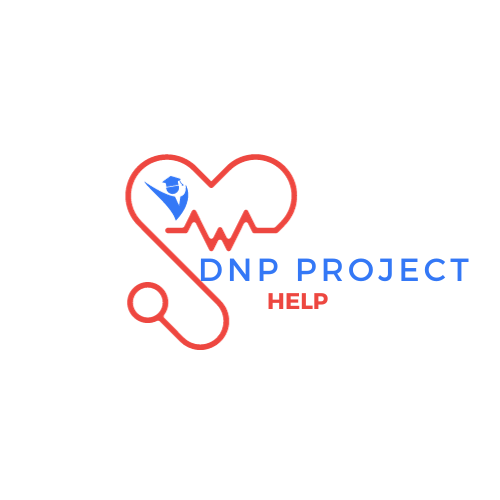
What is a DNP Letter of Intent?
A Doctor of Nursing Practice (DNP) Letter of Intent is a crucial component of your application, serving as a personal essay that provides insights into your qualifications, aspirations, and suitability for the DNP program. This document is a formal way for you to communicate your professional goals, experiences, and commitment to advanced nursing practice.
Introduction:
- Begin your letter with a concise and engaging introduction. State your purpose for applying to the DNP program and express your enthusiasm for advancing your nursing career. Briefly mention your background and the factors that have led you to pursue a Doctor of Nursing Practice.
Educational Background:
- Provide a detailed overview of your educational history, highlighting relevant degrees, certifications, and any specialized training you have undergone in the field of nursing. Emphasize how your academic background has prepared you for the challenges of a DNP program.
Professional Experience:
- Outline your professional experience in nursing, emphasizing key roles, responsibilities, and achievements. Discuss how your practical experiences have shaped your understanding of healthcare and nursing, and how these experiences have motivated you to seek advanced education through a DNP program.
Motivation for Pursuing a DNP:
- Clearly articulate your motivations for pursuing a DNP. Discuss how this advanced degree aligns with your career goals and how it will enable you to contribute to the field of nursing. Address specific aspects of the program that attracted you and explain why it is the ideal next step in your professional journey.
Research Interests:
- If applicable, discuss any research interests or areas of specialization you are passionate about. Highlight any research experience you may have and explain how your research interests align with the goals and focus of the DNP program.
Commitment to Leadership and Advocacy:
- Showcase your commitment to leadership and advocacy in the nursing field. Discuss any leadership roles you have undertaken, and explain how the DNP program will enhance your ability to lead and advocate for positive change in healthcare.
Unique Qualities and Attributes:
- Identify and highlight any unique qualities, skills, or attributes that set you apart as a candidate. This could include cultural competence, communication skills, or a particular perspective that you bring to the nursing profession.
Conclusion:
- Summarize your main points and reiterate your enthusiasm for the DNP program. Conclude with a statement expressing your eagerness to contribute to the nursing profession through advanced education and leadership.
Formatting and Tone:
- Ensure that your letter is well-organized, free of errors, and follows any specific guidelines provided by the DNP program. Maintain a professional and positive tone throughout the letter.
Closing:
- Close your letter with a formal salutation, expressing gratitude for the opportunity to apply to the DNP program. Include any necessary contact information and reiterate your excitement about the prospect of joining the program.
What are the common prompts or questions in a DNP Letter of Intent?
In the application process, while the specific prompts may vary among DNP programs, several recurring themes are often explored:
- Career Goals:
One pivotal aspect centers on delineating your long-term career aspirations within the realm of Doctor of Nursing Practice (DNP). Articulate how the program serves as a conduit for the realization of these ambitions, providing a roadmap for professional growth and accomplishment.
- Clinical Expertise:
A focal point is the elucidation of your current clinical practice, unraveling its intricacies and impact on your decision to pursue a DNP. Delve into how your clinical experiences have molded your interests, propelling you toward an advanced level of practice and knowledge acquisition.
- Research Interests:
The exploration of specific research interests within the expansive field of nursing is often solicited. Align these interests with the program’s research focus, elucidating the synergy between your scholarly pursuits and the program’s overarching objectives.
- Leadership Potential:
A crucial facet involves showcasing your leadership skills and experiences, drawing attention to instances where you have taken the reins in the nursing domain. Elaborate on how you envisage contributing to the nursing profession’s advancement through the lens of a DNP, demonstrating a keen understanding of the leadership role you aim to assume.
- Motivation and Commitment:
Essential to the narrative is an introspective examination of your motivation for pursuing a DNP. Unpack the driving forces propelling you toward this academic pinnacle and elucidate how you plan to sustain unwavering commitment amid the rigors of the program. Convey a profound sense of purpose and determination, underscoring your readiness for the challenges that lie ahead.
What are some tips for writing a strong DNP Letter of Intent?
1. Read the Program’s Specific Requirements:
Begin by meticulously reviewing the DNP program’s website and admission materials. Take note of any specific instructions, guidelines, or prompts provided by the program. This initial step ensures that your letter aligns seamlessly with the program’s expectations.
2. Brainstorm and Reflect:
Dedicate time to thoughtful reflection on your career goals, motivations, and experiences relevant to the DNP program. Consider the unique aspects of your professional journey that make you a compelling candidate. This introspective process will help you craft a narrative that is both authentic and compelling.
3. Create an Outline:
Organize your thoughts by creating a well-structured outline for your letter. Ensure that your essay addresses all the specified prompts and themes. A clear outline not only enhances the coherence of your letter but also helps you stay focused on key points throughout the writing process.
4. Showcase Your Achievements and Skills:
Use concrete examples to showcase your achievements, clinical expertise, leadership skills, and research interests. Provide specific instances from your professional and academic background that highlight your capabilities and contributions to the field of nursing. This adds credibility and depth to your letter.
5. Be Authentic and Passionate:
Infuse authenticity and passion into your writing. Let your unique personality shine through, and express genuine enthusiasm for pursuing the DNP program. Admissions committees are often looking for candidates who not only meet the academic criteria but also bring a sincere and passionate commitment to the field.
6. Proofread and Edit:
Before submission, meticulously proofread and edit your letter. Ensure that it is free of grammatical errors, typos, and formatting issues. A polished and error-free document reflects your attention to detail and professionalism, leaving a positive impression on the admissions committee.
Where can I find additional resources for DNP Letter of Intent help?
1. University Websites:
Begin your search on the official websites of universities offering DNP programs. Many institutions provide specific resources and examples of successful DNP letters of intent. These materials can offer valuable insights into the expectations of different programs and help you tailor your letter accordingly.
2. Professional Organizations:
Explore resources provided by professional nursing organizations such as the American Association of Colleges of Nursing (AACN). These organizations often offer guidance, best practices, and sample letters to assist applicants in crafting strong and effective DNP letters of intent. Take advantage of the expertise and insights they provide.
3. Writing Centers:
Utilize the services of your university’s writing center. Writing centers are equipped with experienced writing tutors who can provide constructive feedback on your essay draft. They can help you refine your writing style, and structure, and ensure that your letter meets the academic and professional standards expected in a DNP application.
4. Online Resources:
Explore various online platforms dedicated to graduate nursing education. Numerous websites offer DNP application tips, advice on crafting compelling letters of intent, and even sample letters that have been successful in the past. Be discerning in selecting reputable sources to ensure the quality of the information you receive.
5. Networking with Peers and Alumni:
Connect with current DNP students, alumni, or peers who have successfully navigated the application process. They can provide valuable firsthand insights, share their experiences, and may even offer to review your letter of intent. Learning from those who have been through the process can be immensely beneficial.
6. Books and Guides:
Consider consulting books and guides focused on graduate school admissions, specifically for nursing and healthcare. These resources often include tips, strategies, and examples of successful application materials, including letters of intent.
DNP PROJECT HELP: Crafting Exceptional DNP Letter of Intent Assistance
DNP PROJECT HELP is dedicated to providing comprehensive support to students aspiring to create compelling and effective Doctor of Nursing Practice (DNP) Letters of Intent. Our assistance encompasses a range of services aimed at guiding candidates through the intricate process of articulating their qualifications, aspirations, and suitability for DNP programs. Here’s how DNP PROJECT HELP contributes to the crafting of a standout DNP Letter of Intent:
- Expert Guidance: Our team consists of experienced professionals with a deep understanding of the DNP application process. We offer expert guidance on structuring the letter, addressing specific prompts, and ensuring that the content aligns with the expectations of DNP programs.
- Content Customization: DNP PROJECT HELP recognizes the unique qualities and experiences of each applicant. We work closely with students to tailor the content of their letters, emphasizing individual strengths, achievements, and aspirations. The goal is to create a personalized narrative that resonates with the admissions committee.
- Review and Feedback: Our services include a meticulous review of drafted DNP Letters of Intent. We provide constructive feedback on clarity, coherence, and overall effectiveness. Through this collaborative process, we aim to refine the content, ensuring that it meets the highest standards of quality.
- Emphasis on Core Themes: We assist students in addressing key themes commonly explored in DNP Letters of Intent, such as career goals, clinical expertise, research interests, leadership potential, motivation, and commitment. Our focus is on helping applicants articulate these themes in a compelling and cohesive manner.
- Alignment with Program Requirements: DNP PROJECT HELP ensures that each DNP Letter of Intent aligns seamlessly with the specific requirements and prompts outlined by the target DNP program. This attention to detail enhances the likelihood of a positive reception by admissions committees.
- Encouragement of Authenticity and Passion: We understand the significance of authenticity in personal statements. DNP PROJECT HELP encourages students to infuse their unique personalities and genuine passion for nursing into their letters. This authenticity not only makes the letter more engaging but also leaves a lasting impression on readers.
- Continuous Support: Our commitment to students extends beyond a one-time review. DNP PROJECT HELP provides continuous support throughout the letter-writing process. Whether students have questions, need clarifications, or require additional assistance, our team is readily available to provide guidance.
Must Read:



